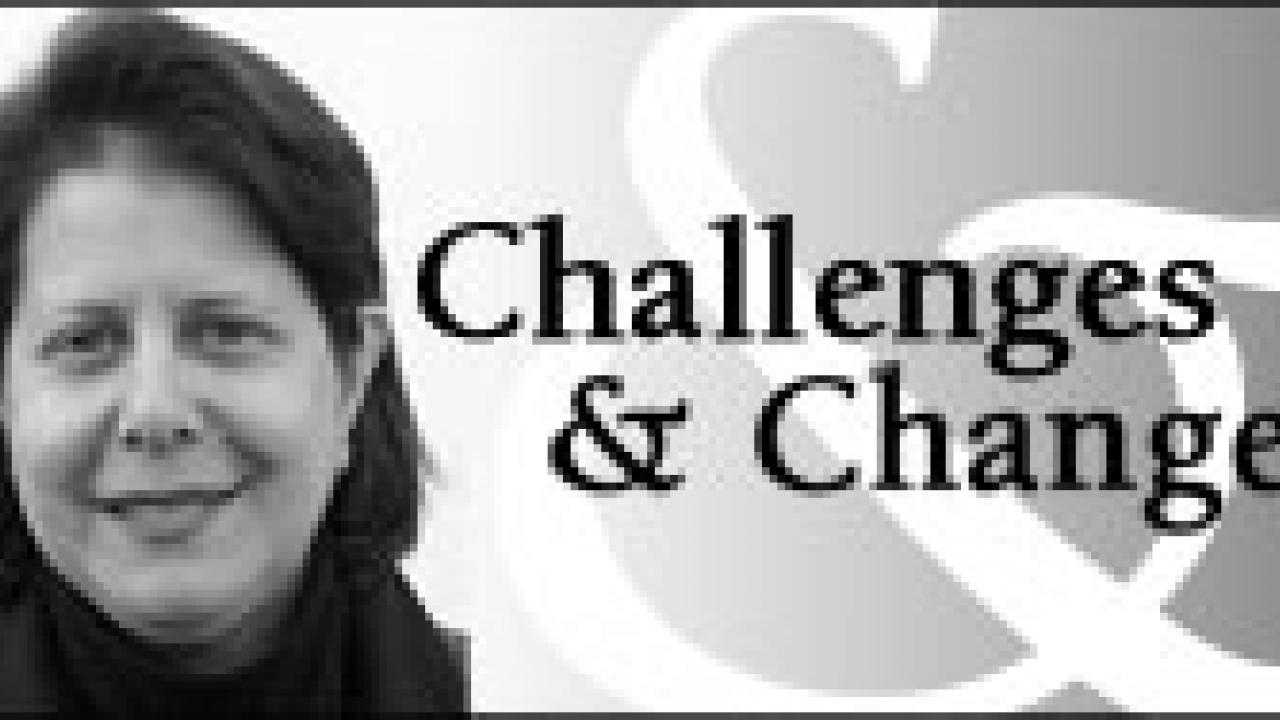By Beth Cohen
My colleagues and I at the Academic and Staff Assistance Program often discuss the best strategies for developing resilience to life stresses.
Traditionally, the field of counseling has focused on symptoms. People would mostly seek assistance at the point of experiencing significant and debilitating symptoms such as insomnia, depression, anxiety or problems at home or work.
Of course, our mission at ASAP is to help those who are experiencing symptoms. Many of you may not realize, however, that we are also here to assist in the prevention of emotional distress. ASAP, along with many other campus resources, strives to promote employee wellness.
Just as many of us take our yearly flu shots as one strategy to build our bodies' immunity against the winter's flu, strategies exist to improve one's "psychological immunity," so to speak. I will introduce three of these wellness strategies: self-awareness, setting limits, and stress-reducing attitudes and techniques.
Self-awareness
The first strategy is self-awareness. Being able to listen carefully to our own needs allows us to recognize personal signs of stress before they grow more severe. But listening to our own needs is often difficult if we have busy lives.
Many of us place ourselves at the end of the priority list. Some feel guilty or selfish if they pay attention to themselves. Despite the discomfort it might create, building in quiet time for ourselves is imperative. In quiet, we can assess our levels of exhaustion, health, fulfillment, desire for change and overall satisfaction.
We cannot attempt to make changes without being aware of those aspects of our lives that are not working. Some people like to create self-awareness by journal writing; others walk in nature. One friend I know gains her life clarity on her early morning treadmill jog. Think of the ways you relax and recharge — and you may open your mind to what you need to change in your life. For example, if you stop and listen you might recognize that you are feeling "rushed all the time," realizing you need to change your schedule to a healthier pace.
Setting limits
Another strategy for boosting psychological immunity involves setting limits with others. Some relationships may feel toxic to us. We sometimes have to keep our distance or create boundaries with those who drain our energy. We often label these as difficult relationships.
Setting limits can be as simple as limiting contact with the difficult person to two hours instead of the usual all day excursion. It can also mean saying "no" to situations when you feel you do not have extra energy to expend. Stay aware of the types of people you feel discomfort around — are they critical, loud, quiet? Think about some limits that you might set in your life to free up extra energy for yourself.
Stress reduction
Finally, there are many practices and techniques to assist in promoting wellness. Not every practice fits every individual. It is important to discover what works for you. Many people complain that they have no time for themselves. This issue tends to decrease both physical and emotional health.
I had a mentor many years ago who preached, "It is as important to play hard as it is to work hard."
Adults need recess time, too. Focusing on our own relaxation and enjoyment is important in order to gain healthy perspectives about our lives, as well as to create energy for change. Some popular balancing strategies include practices that allow us to slow down and focus on ourselves such as yoga, meditation, martial arts, or gardening.
These types of strategies do require us to stay aware of ourselves and our environments. Practiced daily, the benefits will, hopefully, far surpass the work involved in carrying them out.
Learn more
If you would like to work on your life resilience or any other issue, please call and make an appointment. And, keep a look out for ASAP's Wellness Series in March.
Beth Cohen is the interim director of the Academic and Staff Assistance Program. For questions or to schedule an appointment, call ASAP at (530) 752-2727.
Media Resources
Clifton B. Parker, Dateline, (530) 752-1932, cparker@ucdavis.edu
